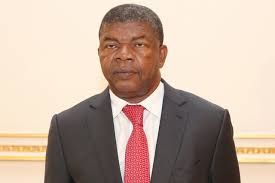
December 12, 2019//-Before the current economic and humanitarian crisis that plagues Venezuela was realized, warning signs were present as the country’s debt and corruption began taking a toll on foreign investors.
In 2016, U.S.-based companies such as Coca-Cola, General Mills, Procter & Gamble and Kimberly-Clark saw themselves leaving or halting operations in Venezuela due to its deteriorating economy that depended heavily upon oil revenue.
When oil prices plunged in 2016, the ripple effect was hard felt. Specifically, Kimberly-Clark reported a $460 million loss and 4% reduction in global earnings, resulting in a significant hit to its stock price.
The downward spiral continued as President Nicolás Maduro publicly admitted his government could not pay its mounting debt in 2017. One crisis after another led to the present-day catastrophe that has harmed many, from Venezuelan citizens to major players in the world economy.
It has been said that “history repeats itself.” Several examples, including the financial crises of Russia in 1998, followed by the United States in 2008, prove that economics is no exception. Thus, the current crisis in Venezuela will likely repeat itself elsewhere.
As Africa’s second-largest oil producer, which has suffered from a similar past of oil dependence, debt and corruption, Angola is poised to repeat history and serve as “the next Venezuela.”
Many countries, including the United Kingdom, are courting Angola to build business relationships in the same way nations and investors sought to ingratiate themselves with Venezuela. It is a direction that has the world economy heading down a dangerous path.
The starkest similarity to Venezuela is Angola’s heavy dependence on oil exports, and its volatile projections for production over the next 3-4 years.
Angola recently saw its lowest oil production in 13 years, and oil production is expected to fall 36% by 2023. What’s most alarming is that oil output represents 40% of Angola’s gross domestic product (GDP) and more than 95% of its foreign exchange revenue, a clear indication that its economy is on the verge of a major deficit.
This problem is compounded by the poor leadership of Angola President João Lourenço, who has begun to receive heavy criticism for broken promises related to reversing Angola’s image of corruption and improving its economy – a similar critique of Maduro as the Venezuela crisis was emerging.
This criticism is well placed and demonstrated by the Angolan government adopting a practice of failing to pay companies for services provided in-country. In recent years, I have represented two U.S.-based power generation companies, APR Energy and LS Energia, which suffered from nearly a combined $100 million in unpaid fees for power generation services provided to the Angolan power utility.
Following years of nonpayment despite frequent promises that installments would come soon, both companies were forced to halt operations, which left many citizens without a stable power supply, significantly hindering their quality of life and compounding Angola’s humanitarian troubles.
On a broader scale, The United Nations Children’s Fund currently estimates 2.3 million people are in need of basic humanitarian relief in Angola, with 1.2 million being children under 18 – numbers that could only increase should the issues of growing debt, nonpayment and lack of transparency with trade partners continue.
Between the APR Energy, LS Energia and other cases, the debt owed to U.S. companies in Angola has recently raised the ire of the White House, which was reported to be considering economic sanctions against the country.
Worse still, abuse of power in the military, which has been a well-documented problem in Venezuela, is quickly becoming an issue in Angola.
Africa Growth Corporation (AFGC), a client of Shutts & Bowen, recently suffered over a $90 million loss when an Angola military general unlawfully seized AFGC’s in-country buildings. The loss was a catalytic prompt that led to the company being de-listed from OTC Markets Group Inc. earlier this year – which, similar to Kimberly-Clark’s 2016 loss – has caused harm to thousands of U.S. shareholders.
Time and time again, crises are allowed to escalate because early warning signs are overlooked. With the similarities between what prompted the current Venezuelan crisis and what’s happening today in Angola, it won’t be long until an economic and humanitarian collapse begins to unfold. And that would be terrible news for the world economy and the citizens of Angola.
By ED PATRICOFF, PARTNER, SHUTTS & BOWEN
NB: Ed Patricoff is a partner at Miami-based law firm Shutts & Bowen, where he heads the firm’s International Dispute Resolution Practice Group.
https://www.africanpress.co.za/is-the-african-nation-of-angola-the-next-venezuela/


